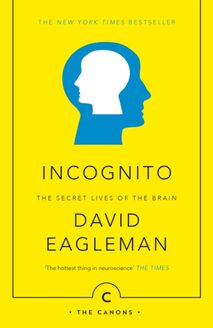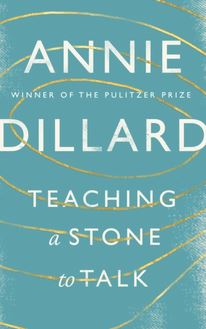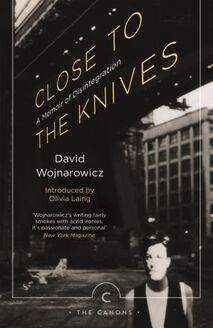-
 Univers
Univers
-
 Ebooks
Ebooks
-
 Livres audio
Livres audio
-
 Presse
Presse
-
 Podcasts
Podcasts
-
 BD
BD
-
 Documents
Documents
-
- Cours
- Révisions
- Ressources pédagogiques
- Sciences de l’éducation
- Manuels scolaires
- Langues
- Travaux de classe
- Annales de BEP
- Etudes supérieures
- Maternelle et primaire
- Fiches de lecture
- Orientation scolaire
- Méthodologie
- Corrigés de devoir
- Annales d’examens et concours
- Annales du bac
- Annales du brevet
- Rapports de stage
La lecture à portée de main
Apricot Jam and Other Stories , livre ebook
197
pages
English
Ebooks
2011
Écrit par
Aleksandr Solzhenitsyn
Publié par
Canongate Books
Vous pourrez modifier la taille du texte de cet ouvrage
Obtenez un accès à la bibliothèque pour le consulter en ligne En savoir plus
Découvre YouScribe en t'inscrivant gratuitement
Découvre YouScribe en t'inscrivant gratuitement
197
pages
English
Ebook
2011
Vous pourrez modifier la taille du texte de cet ouvrage
Obtenez un accès à la bibliothèque pour le consulter en ligne En savoir plus
Publié par
Date de parution
03 novembre 2011
Nombre de lectures
0
EAN13
9780857863201
Langue
English
Poids de l'ouvrage
1 Mo
Publié par
Date de parution
03 novembre 2011
Nombre de lectures
0
EAN13
9780857863201
Langue
English
Poids de l'ouvrage
1 Mo
Selected works by Aleksandr Solzhenitsyn
FICTION
We Never Make Mistakes: Two Short Novels
For the Good of the Cause
The First Circle
The Cancer Ward
One Day in the Life of Ivan Denisovich
Stories and Prose Poems
August 1914
The Gulag Archipelago
November 1916
PLAYS
Candle in the Wind
Prisoners: a Tragedy
Victory Celebrations: A Comedy in Four Acts
The Love-Girl and the Innocent: A Play
NON-FICTION
The Nobel Lecture on Literature
Letter to Soviet Leaders
Lenin in Zurich: Chapters
Warning to the West
Alexander Solzhenitsyn Speaks to the West
East and West
The Mortal Danger: How Misconceptions about Russia Imperil America
The Oak and the Calf: Sketches of Literary Life in the Soviet Union
Rebuilding Russia: Reflections and Tentative Proposals
Invisible Allies
The Russian Question: At the End of the Twentieth Century
First published in Great Britain in 2011 by Canongate Books Ltd, 14 High Street, Edinburgh EH1 1TE
This digital edition first published by Canongate in 2011
www.canongate.tv
Copyright © The Estate of Aleksandr I. Solzhenitsyn, 2011 Translation of ‘No Matter What’ copyright © Stephan Solzhenitsyn, 2011 Translation of all other stories copyright © Kenneth Lantz, 2011
The moral rights of the author and translators have been asserted
First published in the USA in 2011 by Counterpoint, 1919 Fifth Street, Berkeley, CA 94710
This is a work of fiction. Names, characters, places and incidents are the product of the author’s imagination or are used fictitiously. Any resemblance to actual persons, living or dead, is entirely coincidental.
British Library Cataloguing-in-Publication Data A catalogue record for this book is available on request from the British Library
ISBN 978 0 85786 318 8 eISBN 978 0 85786 320 1
Join the discussion :
#apricotjam
contents
APRICOT JAM
EGO
THE NEW GENERATION
NASTENKA
ADLIG SCHWENKITTEN
ZHELYABUGA VILLAGE
TIMES OF CRISIS
FRACTURE POINTS
NO MATTER WHAT
glossary
APRICOT JAM
1
. . . M Y MIND IS all awhirl right now, and if some of the things I say don’t seem quite right I want you to keep reading, you won’t be wasting your time. I’ve heard that you’re a famous writer. I got a little book of your articles out of the library. (I’ve been to school the one in our village.) I had no time to read the whole book, but I did read a piece of it. You say that the foundation of happiness is our collectivized agriculture and that now even the most miserable peasant is riding around on his own bicycle. You say also that heroism is becoming a part of our everyday lives and that the purpose and meaning of life is labor in a communist society. To that I reply that there is queer small substance to this heroism and this labor because it comes from driving people like us nigh to we drop. I don’t know where you saw all the things you write about. You also say a lot about other countries and how bad things are there and how often you noticed people looking at you with envy: Look, there’s the Russian. Well, I’m also a Russian and I recommend me to you. My name is Fedya (Fyodor Ivanovich, if you like), and I want to tell you about myself.
As long as anyone can remember, our family lived in the village of Lebyazhy Usad in Kursk Province. But then they put an end to the way we thought to live. They called us kulaks because we had a house with a galvanized iron roof and four horses, three cows, and a fine orchard by the house. The first thing in the orchard was a spreading apricot tree, and there would be heaps of apricots on it every year. My younger brothers and I would climb all over that tree. Apricots were our most favorite fruit, and I never ever tasted any as good as ours. In the summer kitchen in the yard my mother would make us apricot jam, and my brothers and I just couldn’t get enough of that sweet foam. Before they deported us as kulaks, they tried to make us tell them where we had hidden our goods. Otherwise, they said, we’ll chop down your apricot tree. And they chopped it down.
They took our whole family and a few others besides to Belgorod in carts. There they shoved us into a church they had confiscated for a prison, and they brought people there from a lot of other villages. There was no room to lie down on the floor, and they didn’t give us anything to eat, though a few folks had brought a bit of food with them. At night a train pulled into the station, and there was a deal of heaving and shoving while we were aboarding it, with guards rushing here and there and lanterns flickering. My father told me: "You, at least, can make a run for it." And I did manage to slip away through the huge crowd. The rest of my family went on into the taiga, where they were left to live as best they could, and I never heard from them again.
For me began a life filled with one pain atop the other. Where was I to go now? I couldn’t go back to the village, and though this town wasn’t small, there was no place for me here, and how could I ever hide out in it? Who would give me shelter in their house and risk grievous troubles? Though I was near to full grown, I did find a sojourning among a band of street kids orphans and runaways. They had their own secret dwellings in abandoned houses and barns and sewer manholes. The police wouldn’t bother with these ragged, barefoot kids because they had nowhere to put them and no means to feed them all. They were all dirty, smudgy-faced, and dressed in tatters. They would go abegging from house to house. But the quicker ones would band together, and the crowd of them would run to the market, tip over the trays, and jostle the sellers so that a few of them could pick up some goods. Another might slit a woman’s purse, and another grab someone’s wallet right out of his hand and disappear in a flash. Or they might rush into a dining hall, running among the tables and spitting in people’s plates. Some of the people didn’t manage to cover their plates. Others would stop eating. And that’s all these raggedy kids needed they’d polish off whatever they could grab. They would also rob people at the railway station, and they could warm themselves by the kettles of asphalt when the streets were being paved. But I stood out for being too healthy, not ragged enough, and I wasn’t a kid anymore. I could have become the boss of the whole lot, sitting in a cozy spot and sending the others out to bring back some loot, but my heart’s too soft for that.
Before long, a task force from the GPU picked me out of the gang and took me to prison. At first I didn’t bewray my design they’d picked me up, and that was that, so I spun them a few stories, but then they threatened to lock me away in a solitary cell and let me rot. I could see it was no good trying to deny it lying is also an art and one I had not mastered, so I confessed: I was the son of a kulak. They kept me there until the beginning of winter. Then they changed their minds: Maybe they should send me away to my family, but then how could they find that family of mine they’d destroyed? I expect there was a great confusion in their paperwork. And so it was: I was to go to the town of Dergachi near Kharkov and present the local authorities with my certificate of release. The GPU people never asked how I, with ne’er a kopek to my name, was to make my way there, and all they did was make me sign a paper not to say a word to anyone about what I’d seen and heard during these months in a GPU prison, else they would put me back in jail with no investigation and no trial.
I went out of the prison gate without a clue of what to do. Where now could I take my miserable life? How to get to Dergachi? Or should I just flee in all haste, farther away this time? Then two women came up to me from a little street forenenst the prison where they must have been keeping watch: Had the GPU just let me go? They had, I replied. Had I seen such-and-such a man? He wasn’t in our cell, I said, though it was more than afull with others. Then the older woman, the mother-in-law, asked if I was hungry. Living ahungered has become a habit, I said. They took me home with them. It was a damp little place in a cellar. The older woman whispered to her daughter-in-law, and she left, while the mother-in-law set about cooking three potatoes for me. I tried to refuse: "They’re probably the last ones you’ve got." "Feeding a prisoner is the right thing to do," she said. She also put a little bottle of hemp oil on the table for me. And I have to say that I fell on those potatoes like a hungry wolf. The older woman said, "We may not have much, but at least we’re not in prison, and feeding one like you is God’s own command. Someday you may be able to feed one of ours." Then the young woman came back and gave me a ruble bill and two rubles in change. It’s for your trip, she said, but it’s all we could collect. I didn’t want to take it, but the older woman shoved it in my pocket.
When I saw the food at the snack bar in the railway station my whole body ached. The minute I started eating I couldn’t stop. And so I spent all the money on food. It was no matter, though there wasn’t enough for the trip anyway. That night I squeezed into the train before they could check for my ticket, but a few stations later, the ticket collector found me. Being without a ticket, I showed him my certificate of release from the GPU. He and the conductor looked at each other, and the conductor took me into his tiny room. "Any lice on you?" "Is there a prisoner who doesn’t have lice?" I said. The conductor told me to crawl under a bench and to let him know when to wake me.
Dergachi left me with no good impression, but it was not my lot to live there. I reported to the local soviet, and there they registered me and told me to go immediately to the military enlistment office, though I wasn’t yet of draft age. A doctor gave me a quick look-over and then handed me a little cardboard booklet with a gray stamp and the l

Ebooks
Chronicle In Stone
Ismail Kadaré


Ebooks
Incognito
David Eagleman


Ebooks
Ocean Sea
Alessandro Baricco


Ebooks
Fortunate Man
John Berger


Ebooks
Teaching a Stone to Talk
Annie Dillard


Ebooks
Neither Wolf Nor Dog
Kent Nerburn


Ebooks
Close to the Knives
David Wojnarowicz


Ebooks
Philadelphia Fire
Edgar Wideman John


Ebooks
L.A. Woman
Eve Babitz


Ebooks
Edge of the Sea
Rachel Carson


Ebooks
Under the Sea-Wind
Rachel Carson


Ebooks
Pattern in the Carpet
Margaret Drabble


Ebooks
Reconciliation
Naoya Shiga


Ebooks
Dante's Divine Trilogy
Alasdair Gray


Ebooks
Summer Bird-Cage
Margaret Drabble

-
 Univers
Univers
-
 Ebooks
Ebooks
-
 Livres audio
Livres audio
-
 Presse
Presse
-
 Podcasts
Podcasts
-
 BD
BD
-
 Documents
Documents
-
Jeunesse
-
Littérature
-
Ressources professionnelles
-
Santé et bien-être
-
Savoirs
-
Education
-
Loisirs et hobbies
-
Art, musique et cinéma
-
Actualité et débat de société
-
Jeunesse
-
Littérature
-
Ressources professionnelles
-
Santé et bien-être
-
Savoirs
-
Education
-
Loisirs et hobbies
-
Art, musique et cinéma
-
Actualité et débat de société
-
Actualités
-
Lifestyle
-
Presse jeunesse
-
Presse professionnelle
-
Pratique
-
Presse sportive
-
Presse internationale
-
Culture & Médias
-
Action et Aventures
-
Science-fiction et Fantasy
-
Société
-
Jeunesse
-
Littérature
-
Ressources professionnelles
-
Santé et bien-être
-
Savoirs
-
Education
-
Loisirs et hobbies
-
Art, musique et cinéma
-
Actualité et débat de société
- Cours
- Révisions
- Ressources pédagogiques
- Sciences de l’éducation
- Manuels scolaires
- Langues
- Travaux de classe
- Annales de BEP
- Etudes supérieures
- Maternelle et primaire
- Fiches de lecture
- Orientation scolaire
- Méthodologie
- Corrigés de devoir
- Annales d’examens et concours
- Annales du bac
- Annales du brevet
- Rapports de stage





